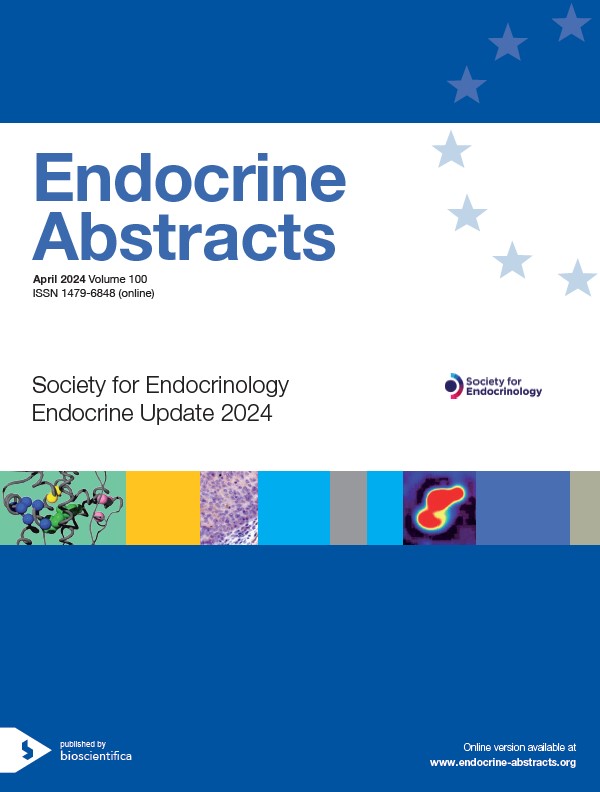Searchable abstracts of presentations at key conferences in endocrinology

Society for Endocrinology Endocrine Update 2024
Society for Endocrinology Clinical Update 2024
Workshop G: Disorders of appetite and weight
ea00100wg1.1 | Workshop G: Disorders of appetite and weight | SFEEU2024
Efficacious use of GLP-1 receptor analogue in type 1 diabetes complicated by class 3 obesity
Introduction: Prader-Willi syndrome is a multi-system disorder that commonly leads to severe obesity. Hyperphagia plays a key role in the development of obesity and without restriction of calorie intake patients will often develop severe obesity related complications including an increased risk of type 2 diabetes (T2DM). GLP-1 receptor agonists (GLP1-RA) have been developed for use in obesity and T2 DM for weight loss and glycaemic control as well as cardiometabolic positive o...
ea00100wg2.1 | Workshop G: Disorders of appetite and weight | SFEEU2024
Continuous glucose monitoring in the management of post-bariatric hypoglycaemia – does it have a place in treatment algorithms utilised by the NHS?
Sarkar Priscilla , Hamza Malak , Ahmad Ehtasham , Papamargaritis Dimitris
Post-bariatric-surgery hypoglycaemia (PBH) typically presents at least six months post-operatively, particularly in those who have undergone Roux-en-Y gastric bypass (RYGB), with the literature suggesting that this condition develops in up to 30% of people post-bypass surgery. PBH is characterised by high postprandial insulin and glucagon-like peptide-1 secretion leading to hypoglycaemia 1-3 hours after consumption of meals that are high in carbohydrate content. We present the...
ea00100wg3.1 | Workshop G: Disorders of appetite and weight | SFEEU2024
Nutritional induced polyneuropathy post bariatric surgery
Neurological complications are frequently recognised with bariatric surgery. We present a case of a young 24 year old female, who had sleeve gastrectomy performed privately in Turkey. She received nutritional supplements following surgery but compliance is uncertain. 3 months post gastrectomy, she was admitted with 2-week history of progressive ascending bilateral lower limb weakness and paraesthesia. She had lost by then 10% of her excess weight. Preceding this episode, she h...
ea00100wg4.1 | Workshop G: Disorders of appetite and weight | SFEEU2024
The slimfast plan to surgical success
Thurston Layla , Wernig Florian
We report a case of a 45-year-old gentleman who was seen in the Endocrine Clinic with confirmed phaeochromocytoma. He had a background of obesity; he weighed 123 kg and at a height of 169 cm, his BMI was 43 kg/m2. This presented a significant risk for laparoscopic abdominal surgery, general anaesthesia and post operative recovery. He was therefore urgently referred to a Tier 3 Bariatric Service and commenced on subcutaneous injections of Semaglutide, initially 0.25 ...
ea00100wg5.1 | Workshop G: Disorders of appetite and weight | SFEEU2024
Orlistat – the forgotten drug
Introduction: Obesity is a chronic disease which becoming a worldwide pandemic. In the UK its estimated that around one in every four adults living with obesity. The mainstay of intervention to manage weight is lifestyle modification includes eating a healthy, reduced-calorie diet and regular exercise. There are different pharmacological therapy agents for medical management of obesity, However, currently NICE recommended weight-loss agents are limited to Orlistat and GL...



